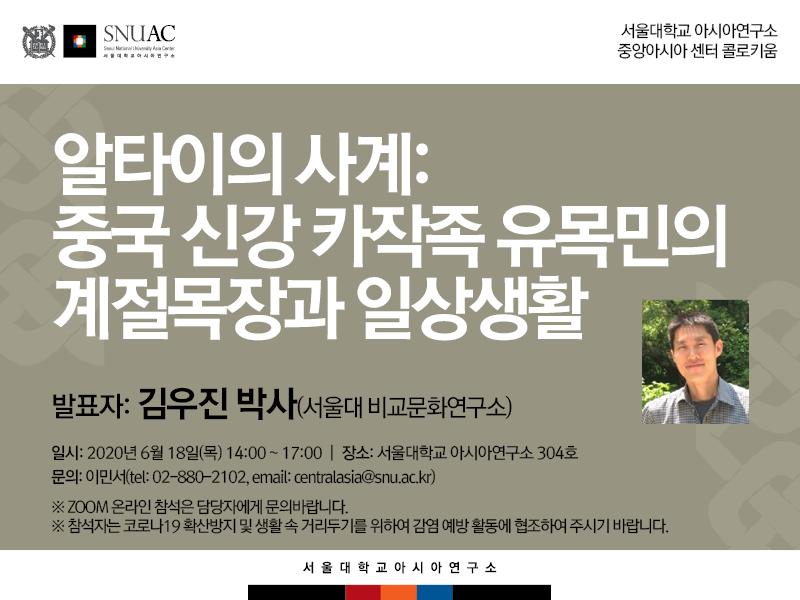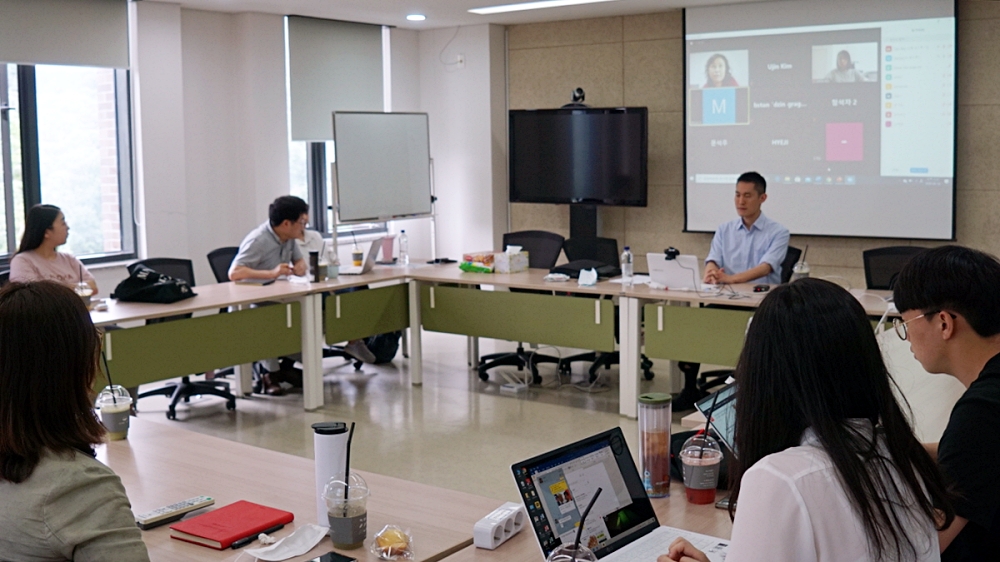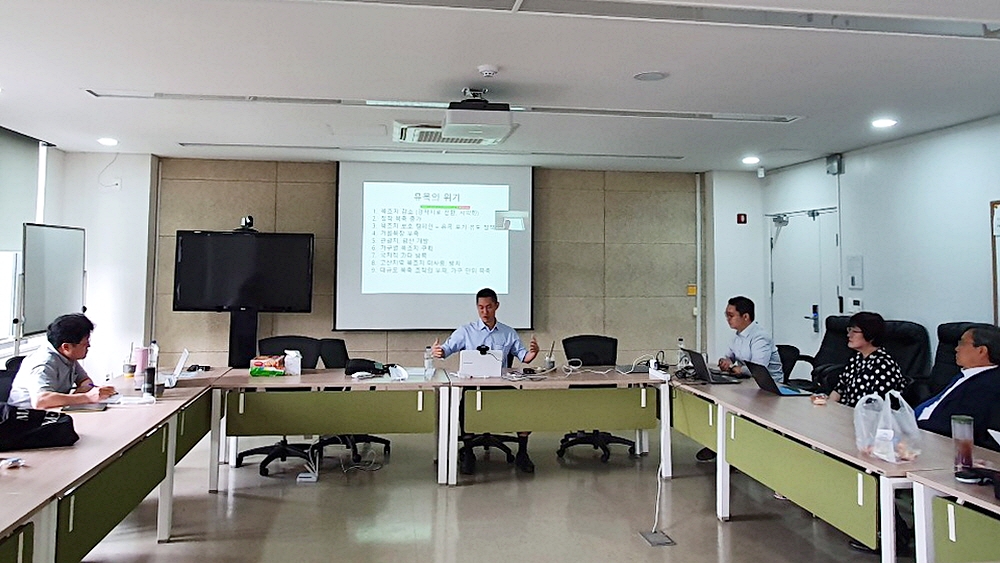Four Seasons in Altay: The Seasonal Pastures and Daily Lives of Kazakh Nomads in Xinjiang, China
- Date: June 18th, Thursday, 2020 14:00-17:00
- Location: Room 304, SNUAC (Bldg. 101)
Speaker: Ujin Kim (Institute of Cross-Cultural Studies, SNU)
SNUAC Center for Eurasian and Central Asian Studies is holding a colloquium on ‘Four Seasons in Altay: The Seasonal Pastures and Daily Lives of Kazakh Nomads in Xinjiang, China’.
※ Register for online/offline participation: centralasia@snu.ac.kr
– Online: Zoom lecture
– The number of offline participants will be limited to 10. A note to all participants to cooperate with our preventive measures for COVID-19.
This colloquium seeks to enhance the understanding of people and culture in Central Asia by examining how the nomadic tradition lives on through the Kazakh people in Xinjiang, China. It is expected for this colloquium to provide an in-depth understanding of the “re-education” issue for the Kazakh people in Xinjiang and Kazakhstan’s return migration policy for the diaspora. Dr. Ujin Kim has observed the daily lives of the nomads while staying with them for an extended period, and now works at the Institute of Cross-Cultural Studies at SNU.
This colloquium held by the Center for Eurasian and Central Asian Studies was on the Kazakh people’s nomadic lives in the Altay region of China, with Dr. Ujin Kim of the Institute of Cross-Cultural Studies at SNU as a guest lecturer. The event was for expanding our agenda of researching trans-borders of Central Eurasia.
The speaker delivered vivid accounts of his 2-year-long field research, about the changes in the nomadic lives of Kazakh people according to seasonal changes. Especially, their lives have turned to construct new patterns of using pastures as the pastures are distributed to individual households and livestock is possessed privately, after the people’s commune in China.
The Q&A session provided all participants a beneficial time to examine the Kazakh people’s life in relation to their being under Chinese rule.






